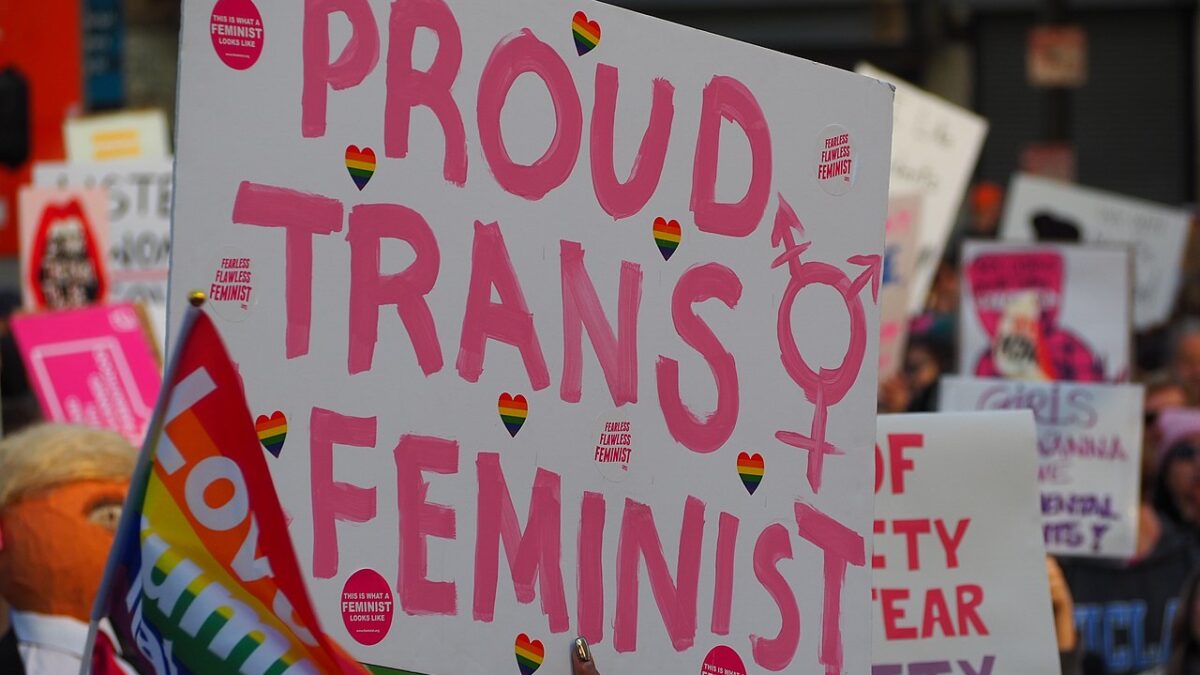
As a former transgender, I am concerned with the attempts underway to change the words we use for gender:
- Facebook expanded its possible designation of gender to 56 choices last year, with the explicit help of LGBT organizations.
- Public and private universities are teaching a similar LGBT version of gender in human sexuality and public health courses. Professors and administrators are telling students that gender is more than male and female—in fact, those designations are simple and passé.
- The new term for those who live life in their birth gender is “cisgender,” or “cis” for short, to distinguish them from “transgender.”
The list reads like something out of a comedy routine, except it isn’t funny when people who need psychological treatment don’t seek it because they see their condition in a list of “normal” genders. They will miss out on hope—the hope that they aren’t stuck in confusion. My concern is that they won’t get treatment, which can help prevent anti-social behaviors and regrettable suicides.
Fostering Confusion Exacerbates Suffering
It used to be that the men with behaviors such as cross-dressing, sexual fetish, transvestite or drag queen dress-up, female impersonation, and taking cross-gender hormones were considered to have psychological disorders. Some were homosexual; some not. Now, the pressure is on to insist that our society accepts and tolerates all oddities as mainstream.
It used to be that those who suffered from gender confusion and distress were considered to have a mental disorder. That’s all changed now with the politicizing of the Diagnostic and Statistical Manual of Mental Disorders (DSM), published by the American Psychiatric Association. Gender confusion is not a disorder anymore, it’s a dysphoria, and as such, it shouldn’t be treated as something to overcome.
Gender distress is now something to embrace and enhance. “You’re born that way,” they say. Take a new gender name from the list of 56 possibilities, take hormones, and perhaps even have surgery to change your body to match your mental image. Get a new birth certificate and be granted equal status with those born in your adopted gender.
Gender Confusion Is Not Biological, It’s Psychological
But what does the research say? Has any biological basis been found that indicates who will develop into a transgender? Is there a genetic marker in transgenders? The answer is no. Researchers have looked for evidence to prove that transgenders are different biologically but they haven’t found any.
- One study published in 2014 looked at certain suspected areas of the brain for an association with male-to-female (MtF) transsexualism and found none.
- Another study, published in 2009, looked for “evidence that genetic variants of sex hormone-related genes confer individual susceptibility to MtF or FtM transsexualism” and didn’t find any.
- Yet another study, published in 2013, found that “gender disorder does not seem to be associated with any molecular mutations of some of the main genes involved in sexual differentiation.”
Not a smidgeon of abnormality can be found in the genetic makeup of transgenders so, no, transgenders are not born that way. They are normal males and females.
What researchers have found is that transgenders attempt suicide at an alarming rate.
What researchers have found is that a majority of transgenders have at least one psychiatric co-existing (co-morbid) disorder, the most prevalent being major depressive disorder, specific phobia and adjustment disorder.
What researchers have found is that 30 percent of gender dysphoria patients have a lifetime diagnosis of dissociative disorder (formerly called multiple personality disorder). Dissociative disorder and gender dysphoria appear very similar, and clinicians often cannot distinguish between the two in the transgender patient.
I think psychologists quickly default to the diagnosis of gender dysphoria and don’t consider the possibility of other disorders. I know: this is what happened with me. The most highly regarded gender specialist in the nation diagnosed me with gender dysphoria. He told me that I was a transgender and recommended that I undergo surgery to transition from male to female. All my discomfort would go away after surgery, he said. He was wrong.
Surgery Can’t Define Who I Am
I lived eight years successfully as a transgender female, but after the initial euphoria wore off, I was still confused and even more depressed. Having surgery and living fully as a woman didn’t alleviate the distress. Later, when I received the proper diagnosis and treatment of my dissociative disorder, I no longer needed to play the role of a woman and I regretted that I had been duped by the redefinition madness. The surgery can’t define who I am. The idea of 56 different genders is repugnant to this former transgender. I am a man, not some nonsense name contrived by the LGBT.
I report stories of regret at the website sexchangeregret.com because today’s social-political correctness would have us believe that no one regrets sex change. But for some transgenders, regret is real. People contact me with their painful stories and tell me they feel all alone. Some are contemplating suicide because they are so despondent over having had needless surgery. Most had difficult childhood experiences that haven’t yet been resolved. Many want to return to their birth gender. All of them tell me that, for them, being a transgender is crazy-making.
My concern is that providing 56 different gender identities deters people who are in gender confusion or distress from seeking proper treatment, which needlessly places them at risk for unhealthy behaviors and possibly suicide. The organizations that propose this apparently are willing to spend time devising new designations and recommending irreversible surgery, but hostile to uncovering the psychological or psychiatric disorders that often accompany gender distress and lead to the high rate of suicide and suicide attempts.









